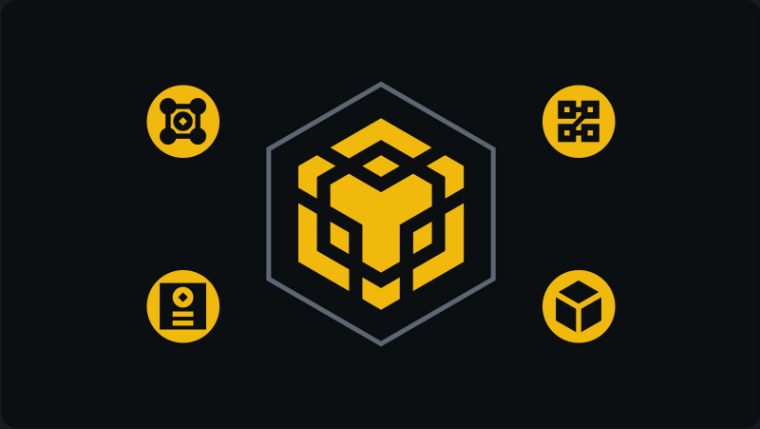
Key Points
BNB Smart Chain (BSC) was created in 2020 and runs parallel to the BNB Beacon Chain. While they serve different purposes, both are part of the broader BNB Chain ecosystem.
BSC introduces new functionalities and greater customization through smart contracts, fostering the explosive growth of decentralized applications (DApps) and Web3 services.
Soon, the BNB Beacon Chain will cease operations and merge with BSC, evolving into a standalone and unified BNB Smart Chain.
Introduction
BNB Smart Chain (BSC) is a blockchain network offering various Web3 tools and decentralized applications (DApps). This high-performance blockchain supports smart contracts, enabling developers to create diverse services and applications, including blockchain games, governance and voting systems, decentralized finance (DeFi), and more.
What is BNB Smart Chain (BSC)?
BNB Smart Chain was launched in 2020 to address the limitations of the BNB Beacon Chain. Thus, to understand BSC, it’s best to first examine its relationship with the BNB Beacon Chain.
BNB Chain went live in 2019. At that time, the utility token BNB migrated from the Ethereum network to BNB Chain, becoming its native token. The predecessor of BNB Chain is what we now know as the BNB Beacon Chain.
In 2022, both BNB Smart Chain (BSC) and BNB Beacon Chain were integrated into the BNB Chain ecosystem. Since then, these two blockchains have continued to operate independently, serving different use cases.
BNB Beacon Chain vs. BNB Smart Chain (BSC)
Unlike the BNB Beacon Chain, BSC features smart contract functionality and is compatible with the Ethereum Virtual Machine (EVM). It was designed to introduce smart contracts to the BNB ecosystem without disrupting the BNB Beacon Chain’s operations.
-
BNB Beacon Chain: Uses the BEP-2 token standard, serves as a governance layer, supports staking, and includes a voting system.
-
BNB Smart Chain (BSC): Designed to provide smart contract functionality. It adopts the BEP-20 token standard, acts as an EVM-compatible layer, and offers DApp and DeFi services, multi-chain support, and other Web3 applications.
Essentially, the two blockchains operate in parallel. Notably, BSC is not a Layer 2 or off-chain scalability solution but a standalone blockchain that can function independently even if the BNB Beacon Chain goes offline.
Thanks to its EVM compatibility, BSC supports various Ethereum tools and DApps, making it easier for developers to migrate projects from Ethereum. For users, this means applications like MetaMask can be easily configured to work with BSC.
BNB Chain Fusion: The Network Merge Plan
In late 2023, the BNB Chain team announced plans to sunset the BNB Beacon Chain, with its core functionalities transitioning to the BNB Smart Chain network.
The migration is expected to occur in multiple phases, starting in April 2024 and concluding in June 2024. For details, refer to the BNB Chain Fusion roadmap.
How BNB Smart Chain Works
Consensus Mechanism
BNB Smart Chain achieves a block time of approximately 3 seconds using a Proof-of-Stake (PoS) consensus algorithm. Specifically, it employs a Proof-of-Staked-Authority (PoSA) mechanism, where participants stake BNB to become validators.
Validators verify transaction blocks and receive a portion of the transaction fees as rewards. Unlike many protocols, BNB is not inflationary, meaning there are no block subsidies in the form of newly minted BNB. In fact, BNB’s supply gradually decreases due to periodic token burns by the Binance team.
BEP-20 Token Standard
BNB Smart Chain uses BEP-20 as its primary token standard. Those familiar with ERC-20 tokens will recognize BEP-20 tokens, as they share the same functions as their Ethereum counterparts.
BEP-20 serves as a blueprint for tokens, defining critical parameters and rules for token issuance and functionality. It is designed as a technical specification for BNB Smart Chain, enabling developers to create various digital assets, including NFTs, stablecoins, utility tokens, and more.
Transactions on BNB Smart Chain require a small amount of BNB as gas fees. Similar to ETH on the Ethereum blockchain, these fees serve as rewards for validators who confirm transactions and secure the network.
Decentralized Finance (DeFi) on BNB Smart Chain
When using DeFi applications like PancakeSwap on BSC, users may notice digital assets from other blockchains, such as BTC, USDT, and ETH. These assets on BSC are referred to as "pegged tokens" or "wrapped tokens," with their value tied to the original assets on their native chains.
For example, the BTCB token on BSC is pegged to the value of BTC on the Bitcoin blockchain. This is achieved by locking one unit of BTC on the native chain and issuing a corresponding BTCB token via a smart contract. This mechanism effectively bridges external assets into the BSC ecosystem.
In other words, thanks to BSC’s flexibility, assets from various blockchains can be utilized within BNB Chain’s evolving DeFi landscape, where users can trade assets, participate in liquidity mining, vote on proposals, and more.
Conclusion
BNB Smart Chain (BSC) is a dynamic, high-performance blockchain within the BNB Chain ecosystem, offering a wide range of Web3 tools and decentralized applications (DApps). Launched in 2020, BSC was designed to overcome the limitations of the BNB Beacon Chain by implementing smart contracts, playing a pivotal role in the rapid growth of decentralized applications and Web3 services.
















